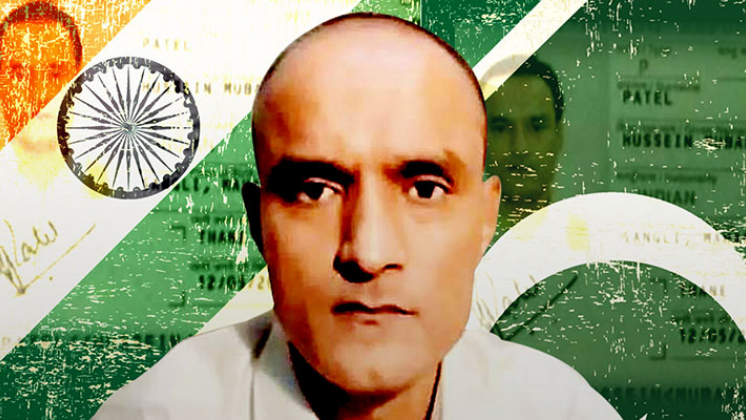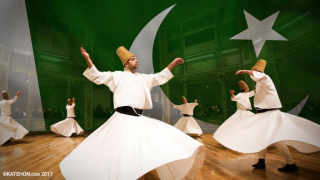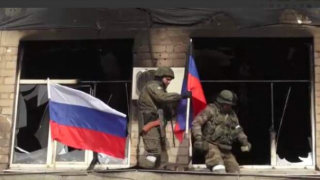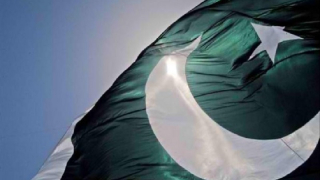Kulbhushan Yadav - From RAW Corridors to the Green Mile
Pakistan Prime Minister Imran Khan has expressed his willingness to peace with India saying, “If India takes one step, Pakistan will take two steps for good neighborly relations.” Moreover, as a token of good will gesture, the work is in full swing at Kartarpura corridor for its opening later in October this year. At a time when Pakistan is tuning harmony in the region, ambassadors of France and Germany have served a positive reminder to both nations that peace can be established if there is a will to forget the bitterness of past. French Ambassador Marc Baréty and German Ambassador Martin Kobler in a joint news conference at the Islamabad Press Club have suggested that the nuclear-tipped, hostile neighbours Pakistan and India should learn from the peace measures taken by two, warring, European neighbours around 56 years ago: open up borders for trade and commerce.
Fine, the quietude is the most profitable of things but both the ambassadors must know that Germany and France share many common values with respect to their culture, religion and with minor difference are equal in strength and size while Pakistan has been facing the hostility of its neighbor for the last 70 years. India, a rogue and uncouth neighbor of Pakistan is five times bigger in its geographic size, population, and economy is prone to behaving with its neighbors especially Pakistan in dictatorial manner like a thief who threatens the constable. The peace between Pakistan and India largely depends on how the latter responds to the unsettled issues between both the countries particularly the issue of Kashmir. Unfortunately, other than the shared border or territory there is nothing common between both the nations as they have different culture, religion, languages, heroes, and history etc. Let us assume that humanity is the common shared value between Pakistan and India which is undoubtedly agreeable but universal truth says, humanity is never revered where the rule of ‘might is right’ sways. To put ones’ best foot forward the world needs to coerce India to settle the disputed issues with Pakistan for regional stabilization and the world community also needs to warn India for exporting state terrorism inside Pakistan.
The global media has been following the footprints of India due to economic interests and the standpoint of Pakistan has not been given due weightage. Despite India’s allegation machine, working round the clock it always happens that from Kulbhushan Yadav to Sarbajeet Singh, Pakistan has always captured their serving spies. There is new problem Pakistan has been facing on its eastern border which is Hindu extremists ruling India. They are threatening Pakistan every now and then and persecuting minorities, especially Muslims. Unprovoked firing along the line of control is a norm. To add fuel to the fury, Indian media controlled and run by fanatics is poisoning their people with venom and hatred towards Pakistan.
On a serious note, whole social fabric of the country is being changed to Hindutva.
In fact, the world should take serious notice of Indian nuclear weapons being in the hands of Hindu extremists inside the nuclear command and control system. It poses potential threat to Pakistan’s national security as well as regional stability. Any misadventure by some extremist elements within Indian official mechanism can create catastrophe in the region, which will have global implications. Pakistan has its own problems but overall things are on the positive trajectory. When Afghan issue will be resolved and CPEC projects are completed, Pakistan will be in far better and stronger position than India and perhaps will be able to exert its position too. On the other hand, India is on the declining path due to rampant extremism.
Indian state terrorism in Pakistan is an open secret and Pakistan has shared concrete evidence of it on various international forums while stories of Indian media also rectify Indians’ involvement in the internal matters of Pakistan. Writing about Kulbhushan Yadav, Chandan Nandy, Opinion Editor of the Portal ‘The Quint’ in his analytical story stated that two former chiefs of the Research and Analysis Wing (RAW), who headed the organization sometime over the past 15 years, had put their foot down against recruiting Kulbhushan Jadhav for operations in Pakistan. Speaking to The Quint, two former RAW senior officers, including one secretary who headed India’s external intelligence agency after 2008, said that the “proposal to recruit Jadhav for operations, whatever it’s worth, was ridiculous.” He referred to the RAW sources – some serving and a few who retired over the past seven to eight years – revealed that Jadhav was not a high-grade operative with skills that other operatives recruited by the agency in other theatres had and used effectively to obtain intelligence. This lends credence to Pakistan’s version that Kulbhushan was serving navy officer and a spy working for RAW. Apropos to the report in the Indian news website ‘The Quint’, India asserted that Jadhav a “former naval officer-turned-businessman,” was “abducted” by Pakistan from Iran. Ironically, the media outlet drew strong backlash for the story with some of extremist Hindu activists calling for boycott of the Quint. Moreover, Journalist Chandan Nandy who filed the story is missing/ gone in hiding, was last spotted at Khan Market Delhi and since then has been untraceable for family and friends. It has proved that Jhadav was a top gun of RAW, funded to a tune of 500 million USDs with a strategic mission to achieve defined RAW objectives within Pakistan.
Pakistan cannot afford to compromise on a terrorist who has confessed involvement in numerous terror activities. It may give wrong message to Pakistan’s own population that the State has double standards. It hangs its own citizens involved in terrorism while it spares Indian terrorists despite confessions. Therefore, Indians have to say good-bye to their ‘son’ and should find courage to face the music as when you send terrorists in another country; you will never be showered with flowers. Kulbhushan Jadhav was arrested in March 2016 from Balochistan; he had faced trial for subversive and espionage activities against Pakistan, followed by hanged to death verdict by the Military court on various counts. Despite the fact that Commander Kulbhushan Jadhav of Indian Navy is not an ordinary prisoner or criminal but a spy, terrorist and killer, Pakistan had not only allowed but also facilitated his meeting with his wife and mother. They returned to India satisfied after a 40-minute meeting, and they had indeed every reason to be satisfied because medical report presented on the occasion, his appearance and good physical health must be a source of consolation for the family. On the other hand, India maltreated many Pakistani prisoners especially Sepahi Maqbool Hussain, a POW.
India had also refused to provide opportunity to the family of Afzal Guru to meet him before he was hanged.
There is incontrovertible evidence of Kulbhushan Jadhav’s involvement in organizing terrorist activities in Balochistan and Karachi. Being instrumental in killing hundreds of innocent citizens and destroying property, military court was perfectly justified in handing out death sentence. Serving Indian Navy commander, spy and terrorist Kulbhushan Jadhav had confessed his heinous crimes before the court, and also in the video. In addition to other vile acts, his mission was to hold meetings with Baloch insurgents and carry out activities with their collaboration, especially to sabotage CPEC. He crossed over into Pakistan to hold meeting with the BSN elements in Balochistan for carrying out subversive activities. Although, many a spies and RAW agents had been arrested in the past, but with the arrest of Kulbhushan Jhadav an on-duty naval officer it has been proved that India is the state that sponsors terrorism.
In the past, Pakistan has been releasing Indian spies and receiving dead bodies of Pakistani prisoners – an inequitable swap of prisoners. One should recall that Kashmir Singh, who was freed from Pakistani jail after 35 years had admitted that he was an Indian spy and did his best to serve the country. “After my arrest in 1974, the successive governments did nothing for my family. I did the duty assigned to me as a spy, but the government after my arrest did not bother to spend a single penny for my family,” he had told reporters in Chandigarh. Another Indian spy Surjeet Singh was released in 2012 after spending more than 30 years in jail in Pakistan for spying; and as soon as he put his foot on Indian soil, he admitted that he was a spy.
Being a terrorist, the case of Kulbhushan does not fall under Vienna Convention, that’s why councilor access was not granted and his fair trail was done under ‘military courts’ which is challengeable in any civil court of Pakistan. Indian designs against integrity of Pakistan have been well reflected by Prime Minister Modi during his state visit to Bangladesh. His remarks were aimed at fanning hatred against Pakistan. UN should have taken notice of Indian’s “open admission” of indulging in subversive activities to destabilize Pakistan and Modi’s statement “acknowledging” India’s intervention in events of 1971. Ajit Doval the National Security Advisor (NSA) of India has also made confessions, that as ‘James Bond of India’; he remained as an undercover agent in Pakistan for seven years posing as a Pakistani Muslim in Lahore. Obviously, India mapped the green mile for Kulbhushan by preparing and sending him for subversive activities in Pakistan through RAW corridors, so putting aside all pressure, his finale should serve as strong warning to such elements having wicked intents against Pakistan.












